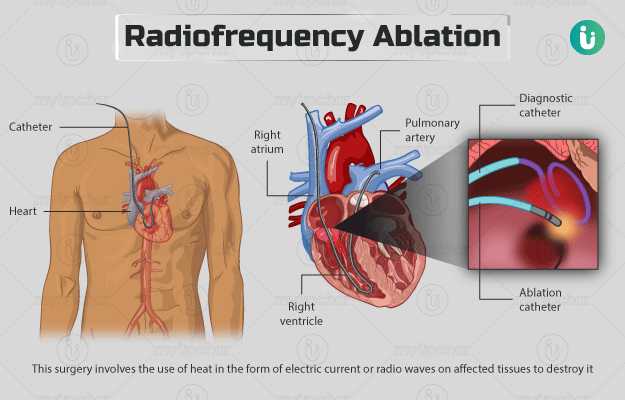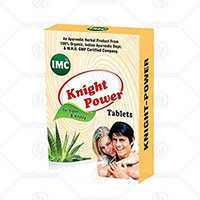After your admission at the hospital for the surgery:
- The medical staff will assist you in changing your clothes into a hospital gown.
- You will be requested to lie on the operating table.
- A nurse will start an intravenous line in your arm to supply all the necessary medicines and anaesthesia.
- Someone from the surgery team will clean the area to be operated with an antiseptic solution. This will help prevent infection.
- An anaesthetist will inject local anaesthesia to you to numb the area of surgery. Additionally, you will need sedative drugs to feel relaxed throughout the surgery.
- The surgeon may use an imaging scan method such as MRI for this procedure.
The exact procedure will depend on the location of the abnormal tissue. Under the guidance of an MRI, CT scan, x-ray or ultrasound, the surgeon will place a needle with a probe at the target area directly or through a catheter. He/she will use electric current to heat the needle and destroy the targeted tissue.
Varicose veins: Once your leg is numb, the surgeon and his/her medical team will perform the following steps to treat varicose veins:
- The surgeon will make a small hole in the affected vein with the help of a needle and then insert the RF device inside the vein through a catheter tube.
- After the catheter is correctly positioned, the surgeon will pull it back through your vein.
- This action will heat your veins and seal them.
- The surgeon may make more small cuts to remove side branches of the varicose veins.
- Once the veins are closed, the surgeon will remove the catheter tube and apply pressure on the area to stop the bleeding.
- The surgical team may place a bandage or an elastic compression stocking on your leg.
For BPH, the following steps will be performed:
- The surgeon will insert a cystoscope into your urethra through the tip of your penis.
- Using this instrument, he/she will then insert tiny needles inside your prostate.
- Once the needles are in place, the surgeon will pass radio waves through them.
- These waves will produce heat and shrink your prostate by destroying some tissues.
- After the procedure, the surgeon will carefully remove the cystoscope.
- Finally, he/she will insert a catheter tube inside your bladder to remove urine until the surgical area heals.
Similarly, for sleep apnoea, the healthcare provider may apply heat to remove tissues from inside your mouth or throat.
It may take about 45-60 minutes to complete this procedure. After the surgery, you will be kept in the recovery room until your vitals stabilise. Usually, patients are discharged on the same day of the procedure. However, in case of certain complications, the doctor may extend your hospital stay. The catheter tube may be removed within one to three days after the surgery.

































